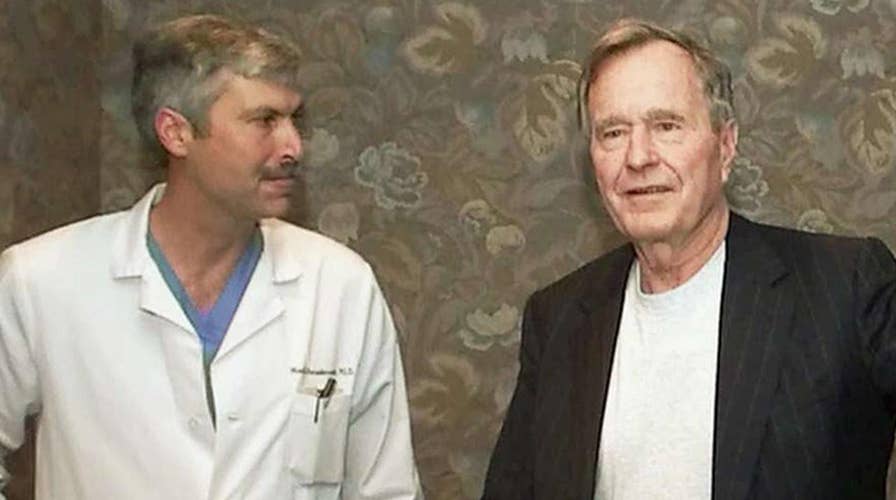Former doctor for George H.W. Bush killed by gunman
Dr. Mark Hausknecht, a cardiologist who once treated former President George H.W. Bush, was gunned down while riding bicycle.
The shooting death of prominent Houston interventional cardiologist Dr. Mark Hausknecht – who treated former President George H.W. Bush years ago for an irregular heartbeat and who prolonged and saved many lives during his long career – deprives patients of a skilled and caring healer.
How many more lives could this skilled doctor, who was 65 and in apparent good health, have saved had he not been taken from us? We’ll never know.
Hausknecht, who trained at Johns Hopkins University in the1980s and who practiced in Houston since 1987, was bicycling to work when he was gunned down Friday morning by another cyclist. Police are working to identify and apprehend the killer.
Known among his contemporaries for his bedside manner, Hausknecht’s career had spanned the major advances in heart technology. These ranged from balloon angioplasty – which first opened coronary arteries without surgery – to the introduction of bare metal stents, to the changeover to stents made of an alloy that releases a chemical that prevents inflammation and premature artery closure.
Hausknecht was an avid cyclist, setting a good example of the value of exercise for his patients. Cycling is a cardiovascular exercise well-suited to a cardiologist who understands the important physiology of dilating vessels leading away from the heart, taking the pressure off the hardest working muscle in the body.
President George H.W. Bush released a statement calling Dr. Hausknecht a “fantastic cardiologist and a good man,” and expressed gratitude for his “exceptional compassionate care.”
The doctor worked at Houston Methodist Hospital and the world renowned DeBakey Heart and Vascular Center.
No one knows at this point if the shooting of Hausknecht was premeditated, grudge-related, or random. Doctors sometimes worry about disgruntled patients becoming psychotic and attacking them, though we have no idea if this was the case here.
Hausknecht’s widow – emergency physician Dr. Georgia R. Hsieh – issued a statement Saturday calling for stricter gun control – an issue some doctors describe as a public health problem.
“'Senseless' has become a trite adjective to describe these tragedies, but what IS senseless is the misguided notion that any society with more guns is a safer society," Dr. Hsieh wrote. "When students cannot go to school without fear, and teachers need to arm themselves, what has this country come to?"
After he was shot, an ambulance in the area stopped to take Hausknecht’s vital signs but had to call the fire department to bring the wounded doctor to the hospital, since the ambulance was already carrying a patient. Consider the irony of a full ambulance being unable to transport a shot doctor who has saved many lives – though there is no definite reason to believe that this delay is what cost him his life.
President George H.W. Bush released a statement calling Dr. Hausknecht a “fantastic cardiologist and a good man,” and expressed gratitude for his “exceptional compassionate care.”
Google reviews, which are often filled with derogatory comments, were glowing and complimentary, with several reviewers calling Hausknecht simply “the best.”
It is easy for a doctor like Hausknecht to feel indispensable, because the stents he placed, the impact of the medications he gave and the kindness he showed his patients stay with them for the rest of their lives. Consider that interventional cardiologists are leaving their signature stents inside the most important arteries in the human body.
Doctors can be appreciated or even cherished, but we are not irreplaceable. Other cardiologists will step in to treat patients Hausknecht would have treated. But it is particularly sad that a compassionate and brilliant man who devoted his life to saving the lives of others – and could have saved so many more – has been killed by an evil man who made it his mission to destroy life.

